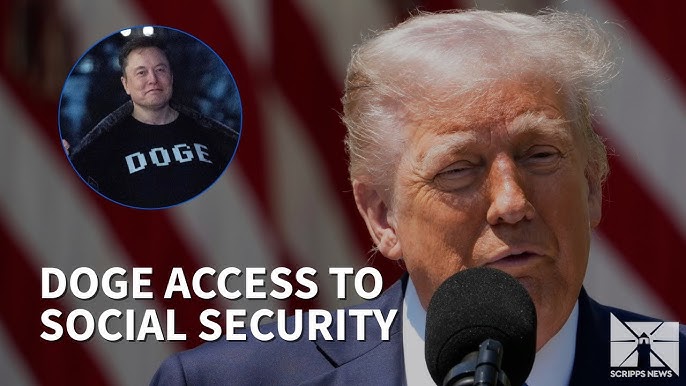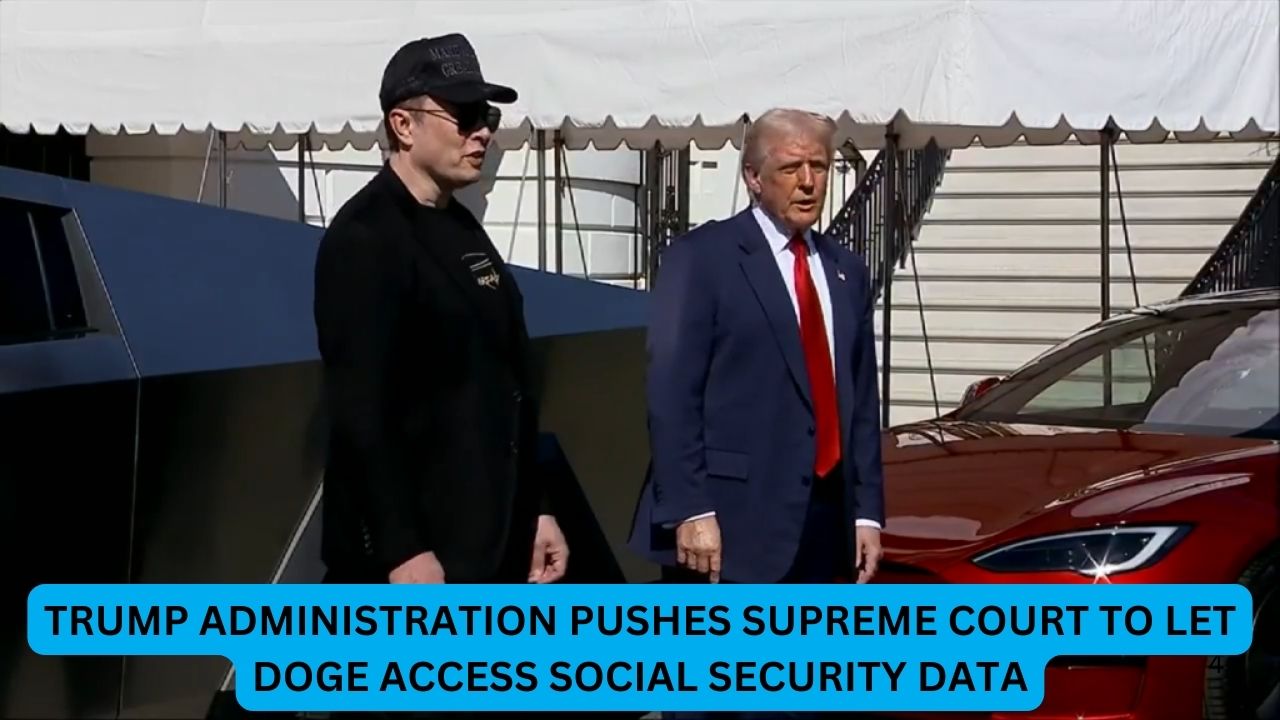Washington, D.C. – The Trump administration has taken a bold legal step by asking the U.S. Supreme Court to overturn a lower court ruling that prevents the Department of Government Efficiency (DOGE), currently led by Elon Musk, from accessing sensitive data held by the Social Security Administration (SSA). The move has sparked widespread debate over privacy, government modernization, and the limits of executive authority.
The Justice Department formally submitted a petition to the Supreme Court, arguing that blocking DOGE’s access to Social Security records impedes the federal government’s broader goals of digital innovation and operational efficiency. According to the administration, the restriction on DOGE represents judicial overreach and undermines efforts to revamp federal systems.
DOGE, established under an executive order in 2024, is tasked with improving government technology infrastructure and streamlining bureaucratic operations. Under Musk’s leadership, DOGE has launched multiple AI-driven initiatives to reduce paperwork, automate outdated systems, and centralize federal data access. However, its request to integrate SSA databases into its infrastructure has triggered legal resistance.
The Legal Dispute
The controversy stems from a lawsuit filed by the American Federation of Government Employees (AFGE) and the privacy advocacy group Rights First. In the complaint, the plaintiffs argue that granting DOGE access to the SSA’s internal records — including sensitive income, disability, and medical information — violates the Privacy Act of 1974 and other federal data protection laws.
In April, U.S. District Judge Ellen Hollander ruled in favor of the plaintiffs, stating that the government failed to demonstrate adequate safeguards for the data and that the executive branch was overstepping its authority by bypassing congressional oversight.
“The proposed data sharing framework lacks clarity and accountability,” Judge Hollander wrote in her decision. “It exposes millions of Americans’ private records to new risks without proper legislative consent or public transparency.”

Trump Administration’s Position
Following the ruling, the Trump administration moved quickly to escalate the issue, warning that delays in DOGE’s access would hinder necessary reforms in digital government services. A senior White House official told reporters that the SSA’s data is “crucial to creating interoperable systems that reduce redundancy across federal agencies.”
The official emphasized that DOGE does not seek to exploit personal data but to develop “secure, AI-powered interfaces” that minimize fraud, duplication, and errors in benefit disbursements. The administration also pointed out that access would be limited to anonymized data unless stricter permissions are granted by oversight bodies.
In its Supreme Court appeal, the Justice Department argues that courts should defer to executive discretion in managing inter-agency data integration, especially when national digital infrastructure is at stake.
Read more about federal benefit programs on the Social Security Administration’s website.
Civil Liberties and Privacy Concerns
Despite assurances from the administration, privacy experts warn that centralizing government data under a department known for rapid experimentation could lead to misuse. Critics cite Elon Musk’s controversial handling of private user data at X (formerly Twitter) and Tesla as causes for concern.
“The federal government must prioritize transparency and oversight, especially when the proposal involves consolidating personal data from millions of Americans,” said Linda Cortez, director of Rights First. “Modernization should not come at the cost of privacy.”
The Electronic Privacy Information Center (EPIC), which has also criticized previous federal overreaches in data collection, echoed those concerns in a public statement. “This move sets a dangerous precedent for data governance,” the group said.
For privacy resources and reports, visit EPIC’s website.
What Happens Next?
If the Supreme Court agrees to hear the case, it could have far-reaching implications for how data is managed across U.S. government agencies. A ruling in favor of the Trump administration would expand executive power to authorize data sharing without legislative approval. If the court upholds the lower ruling, it would reaffirm the role of Congress and the courts in safeguarding privacy rights.
The case is expected to draw national attention in the coming months, especially as debates around artificial intelligence, government surveillance, and digital identity continue to intensify.
This article has been carefully fact-checked by our editorial team to ensure accuracy and eliminate any misleading information. We are committed to maintaining the highest standards of integrity in our content.

Outside of work, he enjoys playing chess, following cricket, and writing short stories. His commitment to integrity and in-depth analysis strengthens OTE News’ mission of providing trustworthy journalism.




